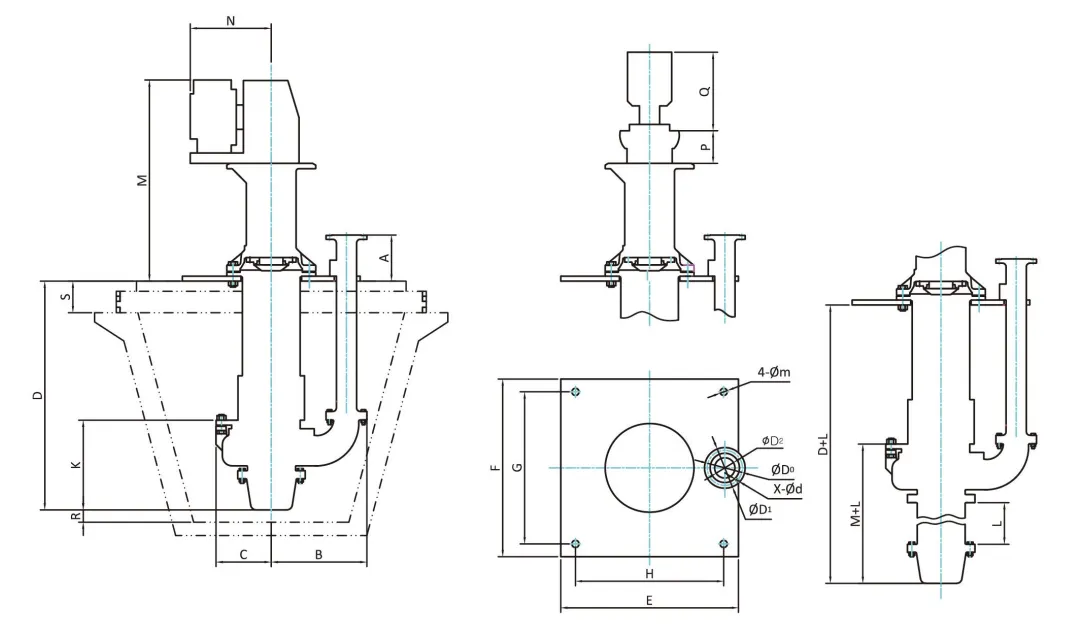-
 support@minemaxx.com
support@minemaxx.com
-
 0086-311-87833311
0086-311-87833311
 NO.8 JIHENG STREET,QIAOXI DISTRICT,SHIJIAZHUANG,HEBEI,CHINA
NO.8 JIHENG STREET,QIAOXI DISTRICT,SHIJIAZHUANG,HEBEI,CHINA
submersible pump impeller
Understanding Submersible Pump Impellers
Submersible pumps play a crucial role in various applications, from groundwater extraction to wastewater management. One of the key components that significantly influences their efficiency and performance is the impeller. In this article, we will delve into the concept of submersible pump impellers, exploring their types, functions, and the factors influencing their design and performance.
What is a Submersible Pump?
A submersible pump is a type of pump that is designed to operate while submerged in fluid. Unlike standard pumps that function above the water surface, submersible pumps are encased in a sealed housing that prevents water from entering the motor. As a result, they can effectively pump liquids from deep wells, underwater environments, and other challenging locations. The design of the impeller is critical for the efficient functioning of these pumps.
Role of Impellers in Submersible Pumps
The impeller is the rotating component of the pump that imparts kinetic energy to the fluid, allowing it to move from a lower elevation to a higher one. It consists of blades arranged around a central hub, which are designed to increase the velocity of the fluid as it passes through. The impeller converts the rotational energy from the pump's motor into hydraulic energy, driving the liquid through the pump and into the discharge pipe.
Types of Submersible Pump Impellers
Submersible pump impellers vary in design and functionality. The two primary types of impellers used in submersible pumps are
1. Closed Impellers These impellers have blades that are enclosed between an upper and lower plate. This design allows for better performance and efficiency, as it helps to minimize turbulence and allows for more precise flow control. Closed impellers are commonly used in applications requiring high efficiency and low NPSHR (Net Positive Suction Head Required) values.
2. Open Impellers Open impellers consist of blades without any enclosing plates. This makes them suitable for handling fluids with larger particles or those with varying viscosities, such as slurries or wastewater. While they are less efficient than closed impellers, open impellers can efficiently manage challenging fluids and reduce the risk of clogging.
submersible pump impeller

Factors Influencing Impeller Design
Several factors influence the design and selection of an impeller for a submersible pump, including
- Fluid Characteristics The type of fluid being pumped determines the impeller design. Fluids with higher viscosity or those containing solids may require open impellers.
- Performance Requirements The desired flow rate and pressure head also influence impeller choice. Impellers must be tailored to meet specific operational demands while optimizing energy consumption.
- Operating Conditions The environment in which the pump operates, including temperature, corrosiveness, and presence of abrasive materials, can dictate the material and design of the impeller.
- Pump Configuration The overall configuration of the submersible pump, including the size and layout of connected components, impacts the optimal design of the impeller.
Maintenance and Care
Proper maintenance of the submersible pump impeller is essential for ensuring longevity and efficient operation. Regular inspections should focus on checking for wear, corrosion, and any blockages in the impeller. Keeping the pump clean and operating within its intended parameters can prevent premature failure and costly repairs.
Conclusion
Submersible pump impellers are vital components that directly affect the performance and efficiency of these pumps across various applications. Understanding the differences between closed and open impellers, as well as the factors influencing their design, can aid in selecting the right pump for specific needs. Proper maintenance practices will further enhance their lifespan and reliability, making them essential tools in industries ranging from agriculture to municipal water supply. By investing in the right submersible pump and maintaining it diligently, users can ensure a seamless and efficient pumping operation for years to come.
-
Wet Parts for Optimal PerformanceNewsOct.10,2024
-
Vertical Pump Centrifugal SolutionsNewsOct.10,2024
-
Top Slurry Pump ManufacturersNewsOct.10,2024
-
The Ultimate Guide to Centrifugal Pump for SlurryNewsOct.10,2024
-
Pump Bearing Types for Optimal PerformanceNewsOct.10,2024
-
A Guide to Top Slurry Pump SuppliersNewsOct.10,2024
-
Slurry Pump Parts for Optimal PerformanceNewsSep.25,2024

